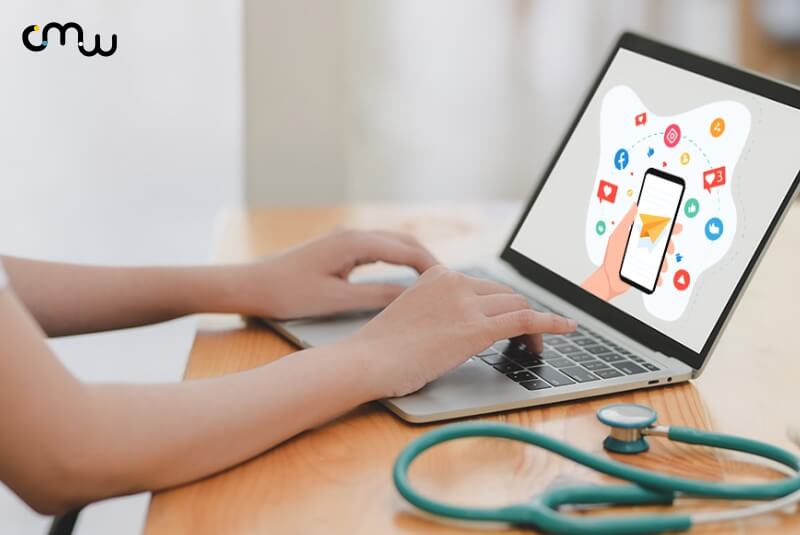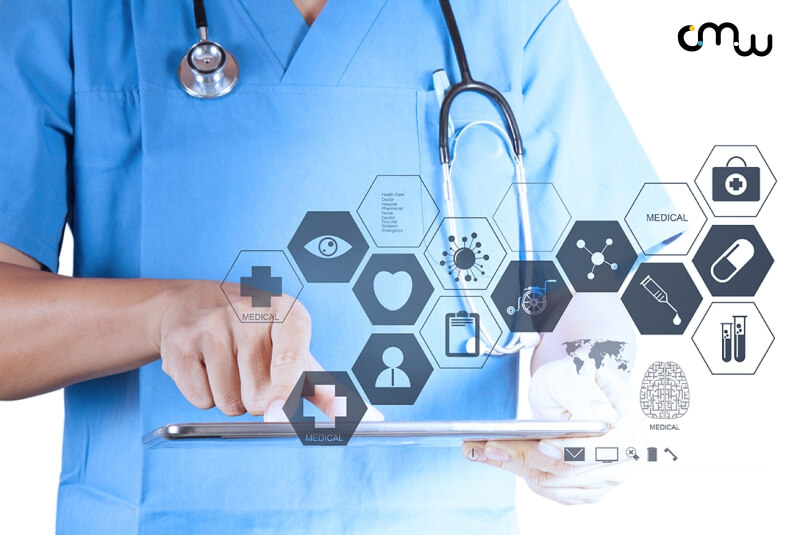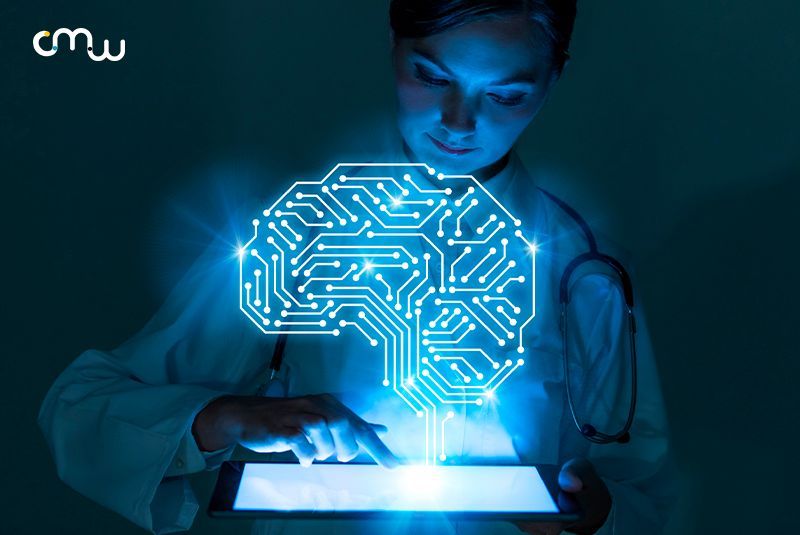7 ways in which AI can revolutionize the healthcare industry. The healthcare market is ready for some revolutionary changes. From persistent illnesses and cancer to risk examination, there are practically unlimited opportunities to use technology to utilize more accurate, systematic, and splendid involvements at the opportune moment in a patient's care.
As payment revisions upgrade, clients demand more from the authorities, and the amount of available information continues to increase. Artificial intelligence is assumed that drives advancements across the care perpetuity through medical imaging.
AI offers various benefits over customary analytics and clinical managing procedures. Learning algorithms can become more specific as they interrelate with training information, granting humans unparalleled perceptions of diagnosis, care procedures, treatment discrepancy, and patient reviews.
1) Quickening up organizational tasks:
Medical personnel wastes the majority of their time filling in various records needed for patient following, budgetary, coverage purposes, and medical insurance. Computerizing such jobs mean remarkable time savings as well as escalated lucidity.
2) Cloud Database:
Healthcare is joining a cloud-oriented era. Thanks to AI technicalities and data science, access to the medical archives will be easy and inexhaustible to a specific location or timing. The alteration will particularly affect mHealth apps, which will be capable of sorting individual data, providing access to every health-connected information like instructions, coverage plans, and bills.
With mobile phones, everybody will have access to their medical archives in an easy to perceive form. Machine learning programs and artificial intelligence in healthcare will provide customized perceptions into one's health condition, as well as counsel on how to alter lifestyle for a fitter one considering specific situations of an individual.
AI could be of considerable worth here, primarily through its proper language clarifying capability. It can acknowledge voice and text to let practitioners use their hands as they command the program. Another method AI programmers say this technology could aid the healthcare area is by spanning through medical archives and arranging them.
3) Drug Selection:
The majority of the time, producing new drugs can take a long time and cost millions. Teaching a network with the consequences of previous efforts can guide the procedure of recognizing modern treatments and pace up the drug authorization procedure. It can also administer out the requirement to examine every amalgamation.
4) Mental Health Care:
The role of AI in healthcare has a considerable chance for the development of the healthcare facility. One of the divisions that would gain the most is mental health care.
AI would authorize, among others, acceleration of most useful data from massive information sets with patients' medical archives. Furthermore, improved AI gadgets will be used for advice in selecting the finest treatment method, as well as to foretell the most probable results of specific answers.
Plus, the application of AI in healthcare can aid fight anxiety. The number of people scuffling with depression has quickly risen within the past few decades, winning the most admired disease of the 21st century. Modern technology might have an answer to this problem.
AI technology can be applied to data analysis based on individual characters like age, sex, genetics, and environment. It is going to be feasible to predict the probability of anxiety and predict potential responses before they occur.
5) Clinical Diagnosis:
AI programs diagnose illnesses swifter and more precisely than doctors. They are specifically successful in disclosing illnesses from pictorial test results. Last year, Google's DeepMind trained a neural system to accurately detect over 50 types of illnesses related to eyes by clearly inspecting 3D renal scans. It shows just how successful AI technology can be at associating real oddities.
The productive treatment of cancer heavily depends on timely observation and preventive actions. Certain kinds of cancer, such as various kinds of melanoma, are infamously hard to detect during the premature stages. AI algorithms can examine biopsy images, and MRI scans 1,000 times quicker than practitioners. The algorithms can identify with an 87% validity rate. Diagnosis mistakes and hindrances are becoming a thing of the past.
6) Robotic Surgery:
Doctors are unlikely to lose their works to robots any time soon. Having a reliable subordinate, such as surgical robot Modus V, which detects sensitive portions like nerves and blood veins, can increase the safety of processes and quicken up a patient's recovery. More modern use of AI in burning surgery evaluate the affected portions with great accuracy and helps doctors plan the arbitration in detail instead of depending on regulations of thumb.
7) Automating Routine Tasks:
An excellent understanding of doctors' routine work includes monotonous, low-level jobs that could be rapidly taken on by AI. Surveying medical pictures, including CT scans and X-rays, and explaining lab experiments, is a full day's task. Yet these jobs could one day be out posting to AI in most cases. Human experts would only have to scrutinize those cases that are out of the blues, something that the robot cannot decode.
Much work will be required to secure the precision of such exercises, but previous studies indicate that a loyal system can win over humans. LYNA, a system invented to detect breast cancer, shows accurate results in 99% of cases. This concludes our list of 7 ways in which AI can revolutionize the healthcare industry.
Impact of AI on healthcare industry
Artificial intelligence and machine learning will put the medical industry on another level, providing more smooth procedures that will amplify patients' amplified consent. The expansion of the healthcare industry in success will also convert into cost savings.
Only by applying modern technologies, it is feasible to provide services echoing the patient's requirements. We must never misjudge the capability of AI gadgets to aid us to conserve our health instead of treating an illness. It is secure to accept that the future will be more about precaution and less about arbitration, all through using contemporary AI-centered technologies.
















